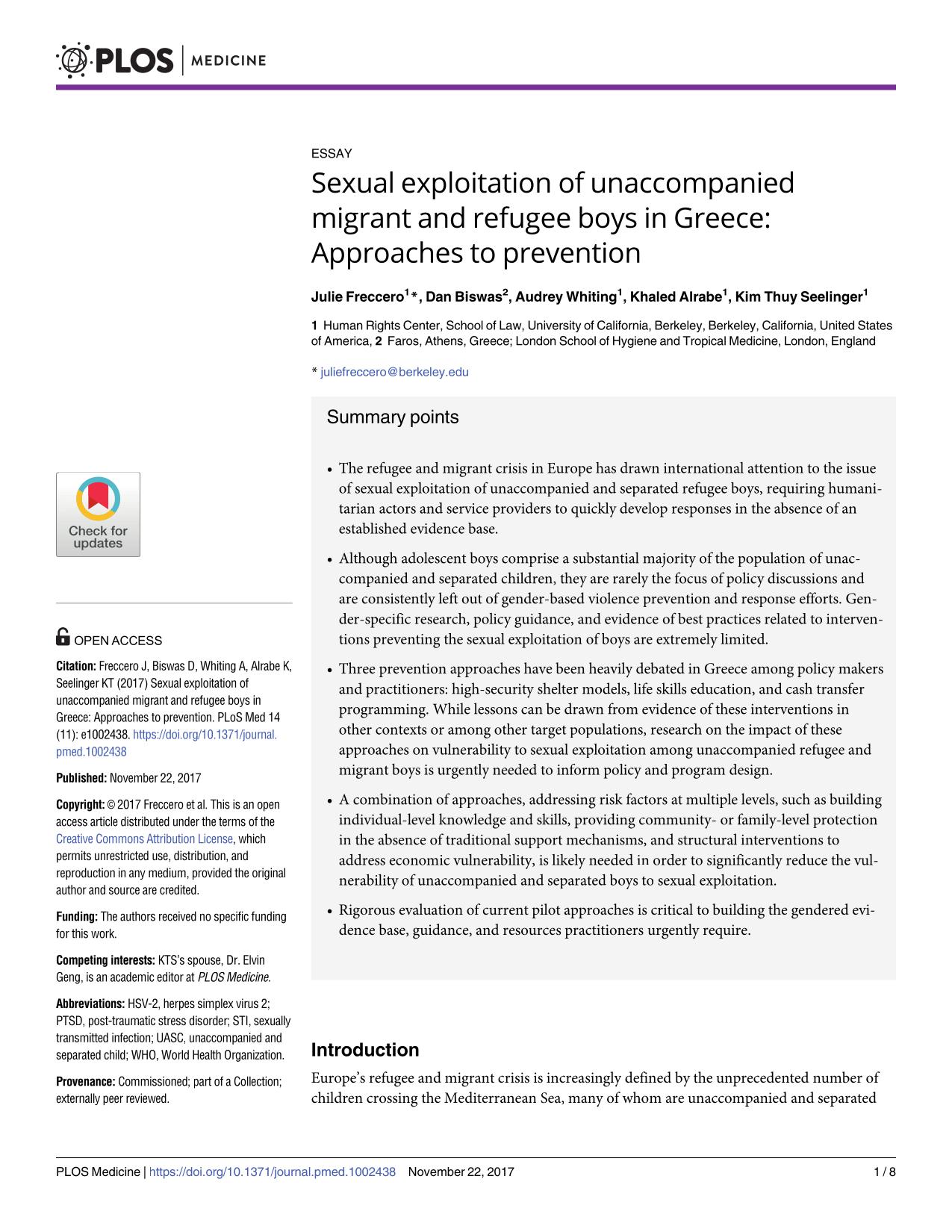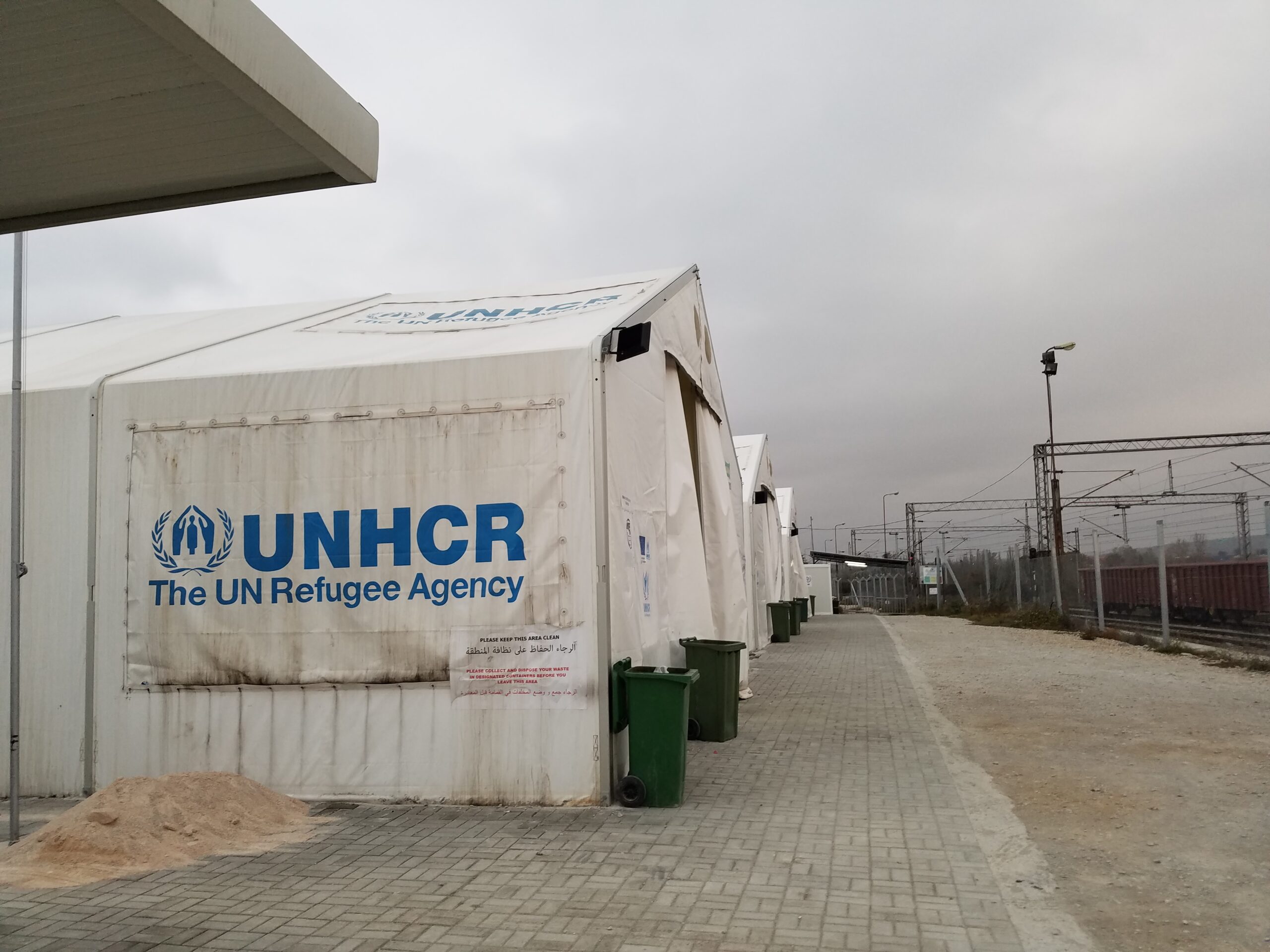Sexual Exploitation of Unaccompanied Migrant and Refugee Boys in Greece: Approaches to Prevention
Summary
The refugee and migrant crisis in Europe has drawn international attention to the issue of sexual exploitation of unaccompanied and separated refugee boys, requiring humanitarian actors and service providers to quickly develop responses in the absence of an established evidence base. Although adolescent boys comprise a substantial majority of the population of unaccompanied and separated children, they are rarely the focus of policy discussions and are consistently left out of gender-based violence prevention and response efforts. Gender-specific research, policy guidance, and evidence of best practices related to interventions preventing the sexual exploitation of boys are extremely limited. Three prevention approaches have been heavily debated in Greece among policy makers and practitioners: high-security shelter models, life skills education, and cash transfer programming. While lessons can be drawn from evidence of these interventions in other contexts or among other target populations, research on the impact of these approaches on vulnerability to sexual exploitation among unaccompanied refugee and migrant boys is urgently needed to inform policy and program design. A combination of approaches, addressing risk factors at multiple levels, such as building individual-level knowledge and skills, providing community- or family-level protection in the absence of traditional support mechanisms, and structural interventions to address economic vulnerability, is likely needed in order to significantly reduce the vulnerability of unaccompanied and separated boys to sexual exploitation. Rigorous evaluation of current pilot approaches is critical to building the gendered evidence base, guidance, and resources practitioners urgently require.

